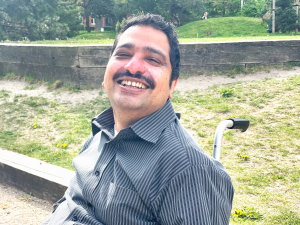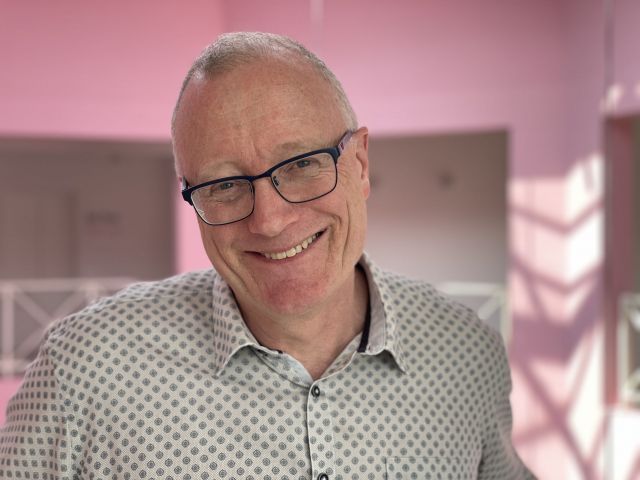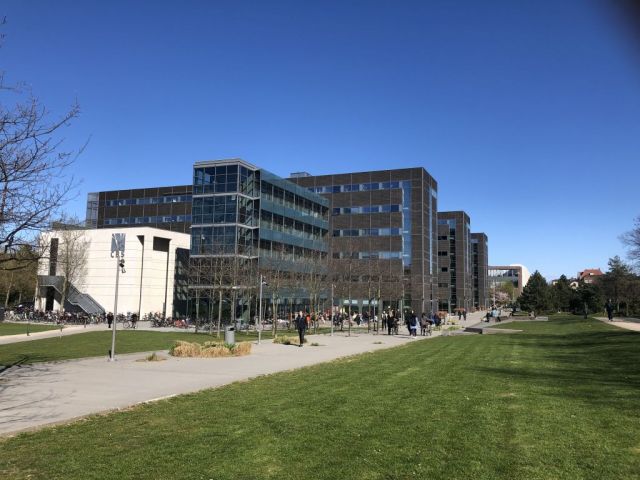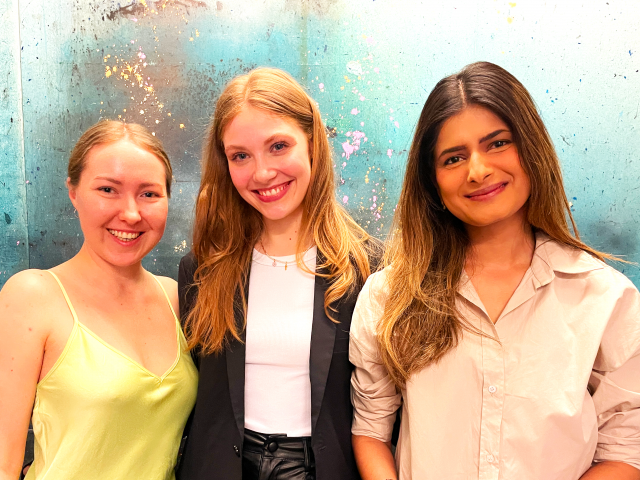No one will hire me because I’m in a wheelchair – what happened to social responsibility?

Hafaz Shah believes that he is being discriminated by Danish companies, because he is in a wheelchair. (Photo: Ida Eriksen)
Hafaz Shah is an HD student at CBS who is constantly improving his resume to attract potential employers. Yet he is repeatedly rejected at job interviews. He knows the reason: his wheelchair. Hafaz has cerebral palsy and therefore can’t walk, which, according to him, is often a showstopper for any hiring panel. “When people see me, they assume I won’t be able to work,” he says.
When you see a person with a disability – for example someone in a wheelchair – do you assume that person is sad and probably does not have an education? Do you wonder if the person has a partner?
You probably do, even though you don’t like to admit it. We are all biased and prejudiced against things that are foreign to us and that we know little about. But why do we let that prejudice control our decisions? Why don’t we just ask what life in a wheelchair is like?
For Hafaz Shah, a well-educated 40-year-old student currently finishing his HD program at CBS, ideas automatically associated with what life is like for him in a wheelchair are an obstacle to him joining the job market in a permanent position.
“Instead of asking me directly what my disability means for my work performance, people dismiss me because they assume I can’t do the work or need a lot of special equipment or help. They don’t look at my professional abilities. All they see is my wheelchair,” Hafaz Shah says and adds:
“When I rarely get all the way to a job interview, I’m often rejected. And when I ask what professional abilities I lack, the person on the other end of the phone is silent for a while before replying – ‘well we had a lot of talented applicants this round’. Honestly, I feel discriminated against.”
I’m afraid that I’ve wasted the last five years of my self-paid studies at CBS and won’t be able to put my skills to good use in a company
Hafaz Shah
No pity please!
Hafaz Shah has a bachelor’s degree in Data Science from Niels Brock and has also had a few short-term jobs at Maersk, IBM and at a job center in Copenhagen.
“No one would hire me for a permanent position, so for a long time, I applied for Human Resources jobs, without any luck.”
He therefore decided to take an HD in marketing management at CBS to make himself into a more attractive applicant for such a job – an education that he has just finished.
“I really hope that I’ll get invited to a job interview now that I’ve graduated as HD in marketing management– not out of pity, but because people can see that I’ll be an asset to their company. I’m good at recruitment, I can optimize business strategies by reviewing annual reports and finding the gaps and solutions. Also, I’m stable, almost never sick and I have a very positive outlook,” Hafaz Shah says.
No extra help required
Even though Hafaz Shah suffers from cerebral palsy and needs a wheelchair to get around, his head works perfectly well.
“My brain is fully functional. I might spill some coffee on rare occasions if I have a spasm, but that’s it,” he smiles, adding “I’m a bit slower at writing on a computer, but I can get a PA to help me with that. I don’t use any special equipment and I’m approved for work 24 hours a week.”
However, Hafaz does fear that history will repeat itself, and that he won’t be able to use his new skills from CBS in real life.
“I’m afraid that I’ve wasted the last five years of my self-paid studies at CBS and won’t be able to put my skills to good use in a company. That would be really sad. Then I might as well have taken that early pension,” he says.

“Please give me a chance to prove, that I can do the job and don’t need extra equipment,” says Hafaz Shah to his future employer. (Photo: Ida Eriksen)
Hafaz really wants a stable job where he can use his new knowledge and skills from CBS.
“I sincerely hope that a company representative reading this article thinks ‘We have to get this guy in for an interview. All companies talk about social responsibility – now is the time for them to put their money where their mouth is.’ Don’t cast me aside because of my wheelchair. Give me a chance,” he concludes.




































































































































Comments